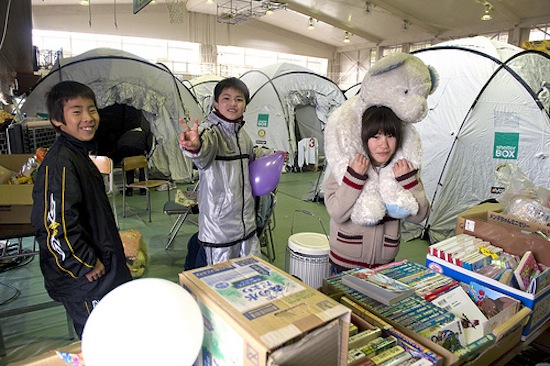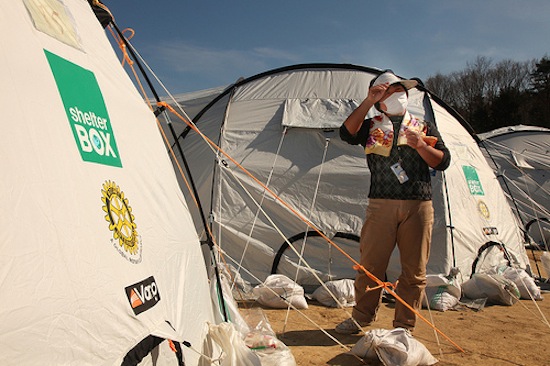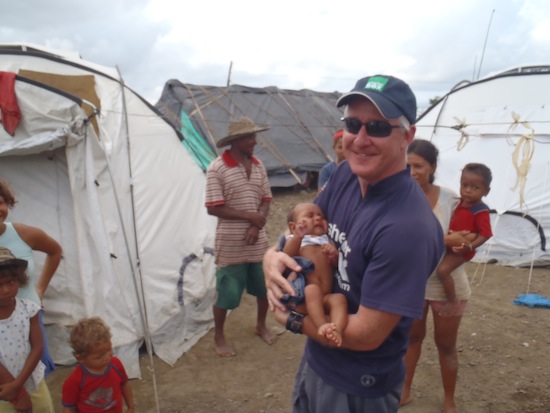
One year ago this weekend, a tsunami, of a scale seen once in 1,000 years, struck Japan.
Putting my disaster relief training to work, I was deployed to Japan with ShelterBox Response Teams to deliver emergency shelter and equipment the week of March 24, 2011. This is my story.
Prior to my trip, I had never been to Japan and I was impressed with what I saw. The people of this country are very proud, straightforward, hardworking and appreciative. I also understood that in Japan there is little or no public display of affection. But I have never felt such a great sense of community than while I was in Japan, where everyone was trying to help each other recover and move forward.
That is why it was so powerful to watch the following scene play out.
As our ShelterBox U.S.A team was canvassing the area, we found a group of people who had been living in their cars for three weeks after the tsunami hit. We were in the middle of a parking lot when two women in their early 60s recognized each other. They clearly had thought the other was dead so they were relieved to see each other. As we watched the pair cry and hug each other, our small group of witnesses was overcome with emotion. This incident was very private and personal, and yet it unfolded right next to me. It was uncharacteristic of the Japanese culture and very powerful. At this time, I felt the true level of pain and loss that many of the families were feeling.

On our deployment, we continued to experience similar situations of heartfelt emotion. We saw what it meant for people to be able to live with dignity again, taking the most basic life ingredients we were able to provide. The ShelterBoxes that our team deployed are green, durable, 120-pound boxes containing a tent big enough for an extended family, blankets and insulated ground sheets, mosquito nets, water purification, basic tool kit, food storage containers and even a wood burning or multi-fuel stove. Within a few weeks time, we were able to move more than 1,700 of these large green ShelterBoxes (more than 18 10-ton trucks worth of equipment) into the affected areas, and distribute it to local communities.
Within three weeks, water had been resorted to the majority of the country. Electricity was available. Most of the major roads and bridges had been repaired and were open.

Although Japan was more prepared for disasters like this than any other country in the world, I am often reminded of the devastation, death toll and human suffering that did occur.
The tsunami covered a huge area and affected people for hundreds of miles up and down the coast. As such, there is, and will continue to be, a need for help in rebuilding huge areas of the country and in housing people while they rebuild homes.
When volunteers put themselves in these situations, it's because we understand the importance of the work we're doing and know that we're making a huge difference in people's lives. I'd say it would be the same reason that people become police officers or firefighters here in the United States.
Arriving back to my home in a suburb outside Chicago, my old routine of paying bills and answering the piles of emails just doesn't seem as important anymore. And while we can never anticipate or want another disaster to take place, I'm ready for the next responsibility to help those in need.
Mark Dyer is a resident of Elmurst, Illinois and has been a ShelterBox Response Team member since 2008. ShelterBox is an international disaster relief charity that delivers emergency shelter, warmth and dignity to people affected by disaster worldwide.
